

Kabindra Shakya
Associate Professor of Environmental Science, Villanova University
Kabindra Shakya is an environmental scientist working in issues of outdoor and indoor air pollution, specifically particulate matter, ozone, and nitrogen oxides. His work also involves assessing trace metal contaminants (heavy metals such as lead) in soil samples from community gardens, residences, and parks. He is specifically interested in issues of environmental justice and also working in various environmental issues in developing countries.
Rriginally from Kathmandu, Nepal, Shakya completed most of his earlier education in Nepal. His PhD work focused on chemical characteristics of particulate matter and his postdoc work focused on assessing health effects from the exposure to particulate matter.
Less ![]()
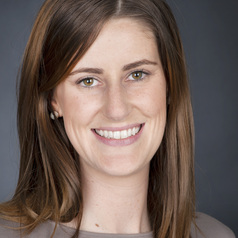
Kacie Dickinson
Accredited Practising Dietitian; Associate Lecturer in Nutrition and Dietetics, Flinders University
Kacie completed a Bachelor of Nutrition and Dietetics (Honours) at Flinders University in 2008 and PhD at University of Adelaide and CSIRO in 2014. Professional practice has included rural Dietitian, Clinical Dietitian, Private Practice and Community and Residential Aged Care Dietitian. Returned to Department of Nutrition and Dietetics at Flinders University in 2013 as a Research Fellow working across various research projects related to ageing and vascular health. Actively involved in state chapters of professional societies including Treasurer of Dietitians Association of Australia and Executive Member of Nutrition Society of Australia.
Less ![]()


Kadian Pow
Lecturer in Sociology and Black Studies, Birmingham City University
Dr Kadian Pow is a Jamaican American ex-pat anthropologist-cum-sociologist living in Britain. She is a lecturer in Sociology and Black Studies at Birmingham City University’s School of Social Sciences. She has been published in three critical volumes: The Fire Now: Anti-Racist Scholarship in Times of Explicit Racial Violence (2018); Gladiators in Suits: Race, Gender and the Politics of Representation in Scandal (2019); and A Fan Studies Primer: Method, Research and Ethics (2021).
Dr. Pow's areas of interest include popular culture, television, social media and fan studies, the socio-political nature of Black hair, and Black feminism(s). She is also the founder and Managing Director for Bourn Beautiful Naturals, which makes solutions-based products for Afro textured hair and sensitive skin.
Less ![]()
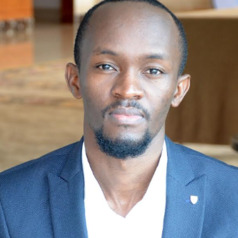
Kahura Mundia
Lecturer, Medical Law and Ethics, University of Nairobi
Dr Kahura Mundia has more than 10 years of experience in the dental profession, with more than six years of experience in healthcare management, health systems, healthcare legal and labour affairs and policy development. He lectures at the University of Nairobi on medical law and ethics. He currently serves as the deputy national chairperson of the Kenya Medical Practitioners, Pharmacists and Dentists Union. Kahura holds an MBA in healthcare from Strathmore Business School, a Master of Dental Surgery in oral and maxillofacial surgery, an LLB from the University of Nairobi and a Bachelor of Dental Surgery from the University of Nairobi. In his spare time, he practises law at Humphrey & Company Advocates LLP, providing legal assistance in litigation, personal injury claims, health, commercial, labour and tax law.
Less ![]()
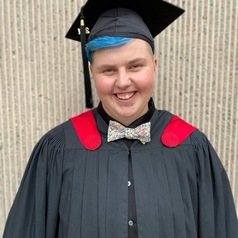
Kai Jacobsen
MA Sociology Student, Carleton University
Kai Jacobsen (they/them) is a Master’s student in the department of Sociology at Carleton University in Ottawa, Canada. They hold a BA with Honours in Sociology from the University of Victoria, and have previously published research on a variety of queer and trans health topics, including gender euphoria and transnormativity.
Less ![]()


Kai Lin
Lecturer in Criminology, School of International Studies and Education, University of Technology Sydney
Less ![]()

Kai Zhuang Shum
Assistant Professor of School Psychology, University of Tennessee
Dr. Shum is a Licensed Psychologist and a Nationally Certified School Psychologist (NCSP). After receiving her Bachelor of Arts (BA) degree in Psychology from the University of Wisconsin-Madison, Dr. Shum completed her graduate training in the School Psychology program at the University of South Florida (USF). Post doctoral graduation, she directed and assisted with multiple nationally funded grants at the USF School Mental Health Collaborative Center focusing on school-based mental health. Currently, she is an assistant professor in the University of Tennessee-Knoxville’s School Psychology program. Her research interests include social-emotional assessment and interventions in the schools, positive psychology, motivational interviewing, social justice and cultural humility, as well as school-based coaching and professional development. Dr. Shum is passionate about sharing research findings and evidence-based strategies and has extensive presentation experiences across various conferences and professional development settings.
Less ![]()

Kai-Ping Huang
Associate Professor, National Taiwan University
Kai-Ping Huang is Associate Professor of Political Science at National Taiwan University. Her research interests include party systems, formal institutions, and democratization focusing on East and Southeast Asia. Her work has appeared in the Journal of Democracy, Comparative Politics, Journal of East Asian Studies, Social Indicators Research, and several edited volumes.
Less ![]()

Kaigan Carrie
PhD Candidate in Criminology, University of Westminster
I'm currently doing a PhD in Criminology at Westminster University, researching prison officer life satisfaction in Finland and Scotland. I also host the Evolving Prisons podcast where I interview people around the world with experience of prison - governors, officers, psychiatrists, doctors and prisoners - to show the realities of life in prison and the human behind the uniform or crime.
Previously, I have worked for the Office of Public Prosecutions in Melbourne, Australia, in their specialist sex offences unit. I've worked as a Court Officer and a Fitness to Practise Investigator in Scotland. I've also spent time teaching crime scene skills at a science camp in America.
Less ![]()
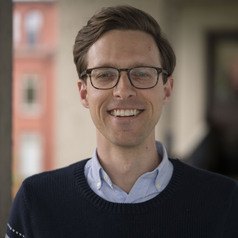
Kaighin McColl
Assistant Professor of Earth and Planetary Sciences and Environmental Science and Engineering, Harvard University
Kaighin McColl is an Assistant Professor at Harvard University, jointly appointed in the Department of Earth and Planetary Sciences and the School of Engineering and Applied Sciences. His group uses theory, models and observations to study the terrestrial water cycle, and its connection to weather and climate over land. Prior to his appointment in 2018, he was a Ziff Environmental Fellow at Harvard University's Center for the Environment. He received his Ph.D. from MIT in 2017, funded by an NSF Graduate Research Fellowship; and received bachelor's degrees in environmental engineering and applied mathematics from the University of Melbourne in 2009.
Less ![]()
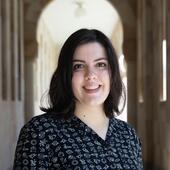
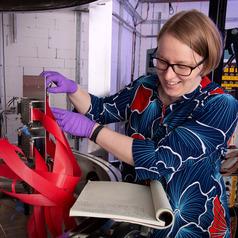
Kaitlin Cook
DECRA Fellow, Department of Nuclear Physics and Accelerator Applications, Australian National University
Kaitlin Cook is a DECRA fellow at the Australian National University. Her work is in the field of nuclear reaction dynamics where she performs experiments investigating the reactions of stable and radioactive nuclei to understand what happens when nuclei touch.
Less ![]()
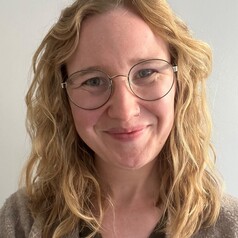
Kaitlin Day
Lecturer in Human Nutrition, RMIT University
My research and teaching interests lie in understanding the individual differences in how our bodies respond to the food we consume. I use this difference to design more personalised and precise nutrition interventions.
Less ![]()


Kaitlin Naughten
Ocean-Ice Modeller, British Antarctic Survey
Kaitlin Naughten is an ocean modeller specialising in ice shelf, ocean, and sea ice interactions around Antarctica. Her research primarily focuses on the response of Antarctic ice shelves to climate change, and the implications for global sea level rise. She has experience with a large variety of ocean, sea ice, ice sheet, and coupled climate models. She co-developed ÚaMITgcm, one of the world’s first successful coupled ice-sheet/ocean models, and is now developing ice-sheet/ocean coupling in the UK Earth System Model.
Less ![]()
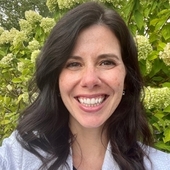

Kaitlin Riegel
Postdoctoral Fellow, University of Canterbury
Background in undergraduate mathematics, assessment, quantitative methods, and academic affect (beliefs, emotions).
Less ![]()

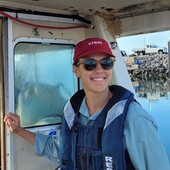
Kaitlyn Harris
Research Assistant, NSW Estuary Monitoring Program, Southern Cross University
Less ![]()
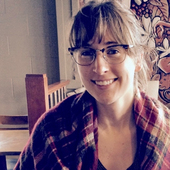

Kaitlyn O'Mara
Research Fellow, Australian Rivers Institute, Griffith University
Kaitlyn is an aquatic ecologist that uses tracers to study food webs and movement of fish and other aquatic organisms, working across a range of environments including estuaries, rivers and wetlands. Kaitlyn's research explores many aspects of fish nutrition, identifying food sources and environments that are important for fish to acquire the nutrients they need to grow and reproduce. Her research uses a whole-ecosystem approach, starting from nutrients, trace elements and other substances in the environment, through the food web to fish and other consumers. The outcomes of her work increase understanding of how aquatic organisms are influenced by their environment and how they will respond to change, such as new water resource developments, contamination from expanding human populations, and increased extreme events such as floods that may result from climate change. This new knowledge informs conservation and environmental management practices.
Less ![]()

Kaitlyn Regehr
Associate Professor and the Deputy Programme Director of Digital Humanities in the Department of Information Studies, UCL
Dr Kaitlyn Regehr is an Associate Professor and the Deputy Programme Director of Digital Humanities in the Department of Information Studies. Her research is focused on the cultural impacts of social media, particularly on children and youth.
Her work has informed legislation on children’s safety online, most recently feeding into the Online Safety Act and the new Cyberflashing legislation, which advocates for the safeguarding of young people against image based harassment online. She has provided consultation in the House of Lords, and Members of Parliament, the Metropolitan Police, Scottish Government, Prevent on the digital echo-chamber effect and the indoctrination of young people into online extremism. She also consults for Education Scotland and Schools across England on digital citizenship education.
Recently, she lead as PI on the “Safer Scrolling Report” in partnership with Association of School and College Leaders, which highlights how the affordances of social media platforms, actively amplify and direct harmful content to young people. The report generated much media attention, featuring in over 300 including the front page of the Guardian, and fuelled high-profile parents movements (including Smartphone Free Childhood). In response, the Shadow Education Minister, has pledged to implement some of the report’s recommendations across the national curriculum.
Less ![]()
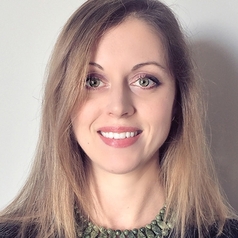
Kaja Jasinska
Assistant Professor, Applied Psychology and Human Development, University of Toronto
Dr Jasińska is an assistant professor in the Department of Applied Psychology and Human Development and the scientific director of the Brain Organization for Language and Literacy Development (BOLD) Laboratory.
She studies the neural mechanisms that support language, cognitive and reading development across the lifespan using a combination of behavioural, genetic and neuroimaging research methods. Her research aims to understand how early life experiences (e.g. language exposure) can change the brain's capacity for language and learning, with a focus on understanding development in environments with poverty-related risk (eg rural communities; low- and middle-income countries).
Dr Jasińska's work uses innovative portable neuroimaging techniques to study brain development in understudied, low-resource settings, leveraging the latest tools of cognitive neuroscience to advance our understanding of global child development. Her work develops and evaluates interventions to support children's learning and development, focusing on literacy. Dr Jasinska is the co-creator of Allo Alphabet, a mobile phone ed-tech program that delivers reading lessons to children in rural Cote d'Ivoire.
Less ![]()

Kajal Gokal
Senior Research Associate in Behavioural Medicine, Loughborough University
Kajal obtained her undergraduate degree in Psychology from Aston University, and her PhD from Loughborough University which focused on the implementation of a self-managed, physical activity intervention among breast cancer patients during active chemotherapy treatment.
Following the completion of her PhD, Kajal took up a Research Associate position at Coventry University where she worked on a number of NIHR, MRC and CRUK funded projects developing and evaluating digital health interventions. Kajal joined Loughborough as a Senior Research Associate in September 2019.
Kajal’s research focuses on the design, implementation, and evaluation of health-related behaviour change interventions, and providing individuals with the resources to make positive changes to their health and well-being. Kajal has a strong interest in digital behaviour change interventions and self-managed physical activity interventions for the prevention and management of cancer.
Less ![]()
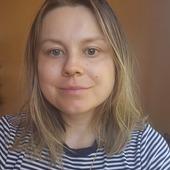
Kajsa Lundberg
Research Fellow Sustainable Consumption and Policy, Centre for Urban Research, College of Design & Social Context, RMIT University
Less ![]()
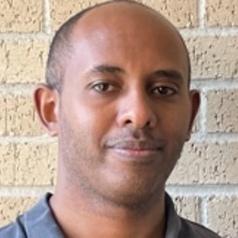
Kaleb Girma Abreha
Assistant Research Scientist, Mosbacher Institute for Trade, Economics, and Public Policy, Texas A&M University
Dr. Kaleb Abreha holds a Ph.D. in Economics and Business Economics from Aarhus University in Denmark, a Master’s degree in Agricultural Economics from the University of Copenhagen in Denmark, and a Bachelor’s degree in Economics from Addis Ababa University in Ethiopia. Since earning his Ph.D., he has completed several research projects and peer-reviewed publications as a research fellow at Aarhus University and as a consultant at The World Bank. He was also a World Bank Africa fellow. Besides research, he lectured and assisted several undergraduate and graduate courses in economics, international business, and strategic management. His research interests are in the areas of international trade and investment, global value chains, firm and industry dynamics, industrialization, and economic growth and transformation.
Less ![]()
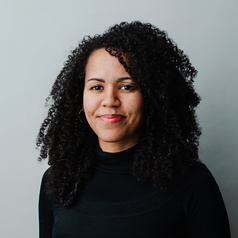
Kaleigh Pennock
Assistant Professor, Department of Recreation and Leisure Studies, University of Waterloo
Kaleigh Pennock is an Assistant Professor in the Department of Recreation and Leisure Studies in the Faculty of Health at the University of Waterloo. Her research addresses risk, responsibility, and harm in youth sport. Her interests include psychosocial aspects of sport-related concussions, decision-making and safe sport practices in community sport organizations, and inclusion and belonging for Black and racialized Canadian youth athletes. Her work emphasizes the complex interplay of personal, social, and cultural factors that shape athletes’ experiences in sports, highlighting the responsibility of sport leaders in safeguarding and supporting youth athletes.
Less ![]()

Kalen Flynn
Research Scientist, Center for Guaranteed Income Research, University of Pennsylvania
Kalen earned her MSW, MSSP, and PhD from SP2. She comes to the center with over a decade of experience in research and policy practice. As a social science researcher, social work educator, and former policy -research practitioner, Dr. Flynn focuses her research on two aims: first, investigating the impacts of structural violence, and second, examining policy solutions to mitigate these impacts. Her work has earned accolades including an honorable mention for the Society of Social Work Research’s Outstanding Dissertation Award in 2019 and the Social Services Review’s Frank R. Breul Memorial Prize in 2022. Dr. Flynn is PI of two guaranteed income pilots in Saint Paul, MN examining the impacts on refugee families and artists, she is also co-PI on the NIH funded grant “Child Support Arrears: Understanding the Scope, Magnitude, and Opportunities for Reform in Cook County”. Kalen has expertise in qualitative methods and community-based research.
Less ![]()
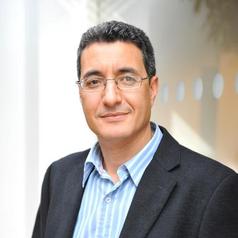
Kamel Mellahi
Kamel’s research focuses on non-market strategy, strategic failure and renewal, international business strategy, and internationalisation strategies of emerging markets firms.
He has co-edited or co-authored five books and published over 70 scholarly articles. His research has been published in leading strategy and international business journals including Strategic Management Journal, Journal of Management Studies, Academy of Management Perspectives, and Journal of International Business Studies.
Kamel serves as Co-Editor-in Chief of the International Journal of Management Reviews.
Less ![]()

Kamil Zuber
Senior Industry Research Fellow, Future Industries Institute, University of South Australia
Less ![]()
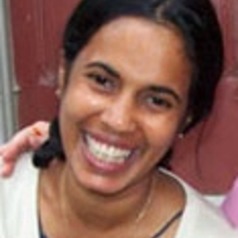
Kanchana N Ruwanpura
Professor in Development Geography, University of Gothenburg
Kanchana N Ruwanpura is a Professor of Development Geography at the Human Geography Unit, University of Gothenburg, Sweden and a Fellow at the Centre for South Asian Studies (CSAS), University of Edinburgh, Scotland. Her PhD in Development Studies is from Newnham College, University of Cambridge. She has worked at the Edinburgh, Southampton, Hobart & William Smith Colleges, the University of Munich and the International Labor Office (Geneva).
Kanchana’s recent research explores themes around debt justice, the political economy of debt and feminist politics, with generous funding from the Bromanska and Adlerbertska Foundations and the University of Gothenburg. She came to this research through involvement in debt justice activism for Sri Lanka, which has resulted in a voluntary and virtual initiative called the Institute of Political Economy, Sri Lanka (https://ipe-sl.org)
Previously, she has broadly worked on themes around feminism, labour practices, ethical trade, infrastructural politics and ethnicity in South Asia. Her research has been funded by the AAUW, ESRC, the ERC and the British Academy, amongst others. Her research has been published in peer-reviewed journals, edited volumes, edited books and as research monographs published by Michigan University Press and Cambridge University Press. She served as editor for the journals Gender, Place and Culture and Geoforum and is on the Editorial Boards of Feminist Economics, Contemporary South Asia, Gender, Place and Culture and Environment and Planning A.
During 2019-20, she was awarded fellowships by the Humboldt Foundation, Max Weber Stiftung (declined) and France-ILO Chair at IAS-Nantes (France), where she finalised her last book, Garments without Guilt? Global Labour Justice and Ethical Codes in Sri Lankan Apparels published by Cambridge University Press. She recently completed and co-edited (with Amjad Saleem) the Routledge Handbook of Contemporary Sri Lanka (2025), which is published open access.
Less ![]()
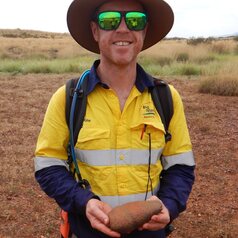
- Market Data





















